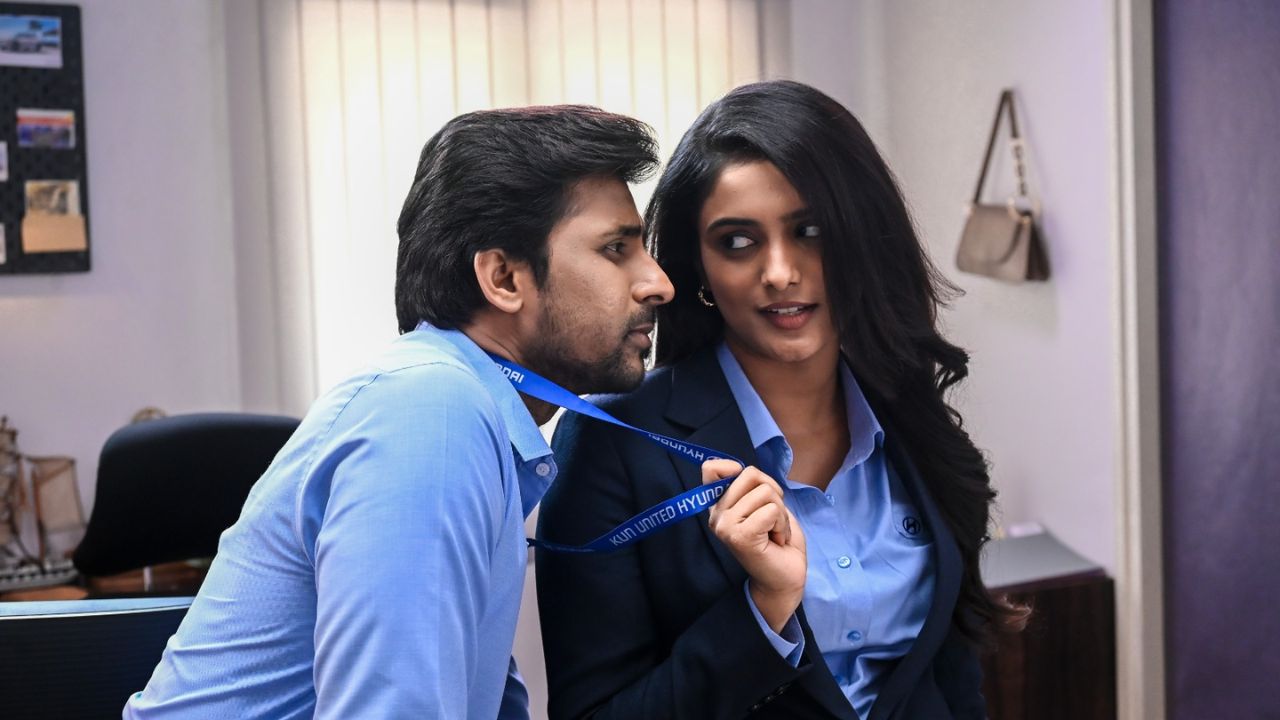
Number One on the Call Sheet Review: A Profound Documentary on the Experience of Black Actors in Hollywood
11 days ago | 5 Views
The new two-part documentary, Number One on the Call Sheet, offers a captivating exploration of the dynamics within the film and television industry. The title alludes to the production unit data that indicates an actor's ranking on a project. This seemingly minor detail unveils significant insights into the Hollywood ecosystem, which operates under its own set of rules and trends that influence an actor's position on that list. The documentary delves into this system across two episodes, with the first examining the experiences of male actors and the second highlighting those of female actors. The presentation is enriched by perspectives from some of the most pioneering Black actors of this generation, making it a remarkable viewing experience.
Part one
The inaugural episode features a range of prominent Black actors, including Michael B. Jordan, Daniel Kaluuya, Denzel Washington, Will Smith, Kevin Hart, Jamie Foxx, Morgan Freeman, Marlon Wayans, and the late Chadwick Boseman. It begins with a thoughtful acknowledgment of the historical significance of Black actors in Hollywood. The narrative raises the important question of how a Black male actor can assert his presence and command respect on screen, a discussion that rightfully begins with the influential legacy of Sidney Poitier, the first Black actor to receive the Oscar for Best Actor in a Leading Role. Reginald Hudlin skillfully incorporates archival and film footage, providing a heartfelt tribute to those actors who have left a lasting impact on the industry.
The conversation then transitions to how Hollywood has often confined these actors to specific archetypes, such as the action hero, the comedian, or the traditional ‘actor.’ When considering figures like Eddie Murphy, Will Smith, and Denzel Washington, which one aligns best with these roles? This highlights the ongoing challenge of shaping perceptions and constructing images within the industry. Nevertheless, the episode occasionally veers into excessive self-awareness, quickly moving through initial assumptions, motivational quotes, and personal stories. Notably, it is Denzel Washington's insightful critique of Hollywood's portrayal of leading men that resonates most powerfully.
Part two
Shola Lynch directs the second installment, which showcases an impressive ensemble of actors, including Whoopi Goldberg, Angela Bassett, Viola Davis, Gabrielle Union, Taraji P. Henson, Halle Berry, Tiffany Haddish, Gabourey Sidibe, Alfre Woodard, and others. This episode presents a more focused and nuanced exploration of beauty standards, culminating in a poignant conclusion. It traces the historical roots of the stereotypical portrayal of Black women in domestic roles, serving the White lead heroine. This supporting character trope has evolved into contemporary portrayals, where many recent instances feature Black actors as friends to White leads—often characterized as sassy yet careful not to outshine them, as seen in The Queen's Gambit.
The narrative of representation and acknowledgment for Black female actors is intricately woven into the history of the Academy Awards, constituting the most significant portion of the documentary, which is skillfully structured and edited. Halle Berry reflects on her groundbreaking win in 2002, sharing memorable anecdotes from Whoopi and Taraji. However, the question remains: what has changed since then? No other Black actress has secured the Oscar for Lead Actress, with victories predominantly occurring in the Supporting Actress category. While there is ample opportunity for progress, it is also essential to lead by example.
Final thoughts
A standout moment in this episode is Ruth Negga's heartfelt acknowledgment of her surname, where she articulates its significance to her as someone who refuses to compromise her identity in the face of societal assumptions. This poignant scene is skillfully crafted by the director and captured through the lens, brought to life by an actress who consistently mesmerizes audiences. Her remarkable performance in Passing (2021), which was shockingly overlooked by the Academy, serves as an essential thematic backdrop in the exploration of the intersection between personal identity and political context.
Insightful and impactful, Number One on the Call Sheet functions both as a tribute and an investigation. It presents a candid portrayal of Hollywood and its historical treatment of Black actors, unflinchingly addressing the unsettling realities of the industry. This documentary fosters a dialogue aimed at confronting the truths of the entertainment world while simultaneously celebrating the resilience and creativity of artists navigating an overwhelmingly capitalistic landscape.
Read Also: The Divorce Insurance Review: Lee Dong-wook's Star Power Keeps It Afloat
"Get the latest Bollywood entertainment news, trending celebrity news, latest celebrity news, new movie reviews, latest entertainment news, latest Bollywood news, and Bollywood celebrity fashion & style updates!"





















